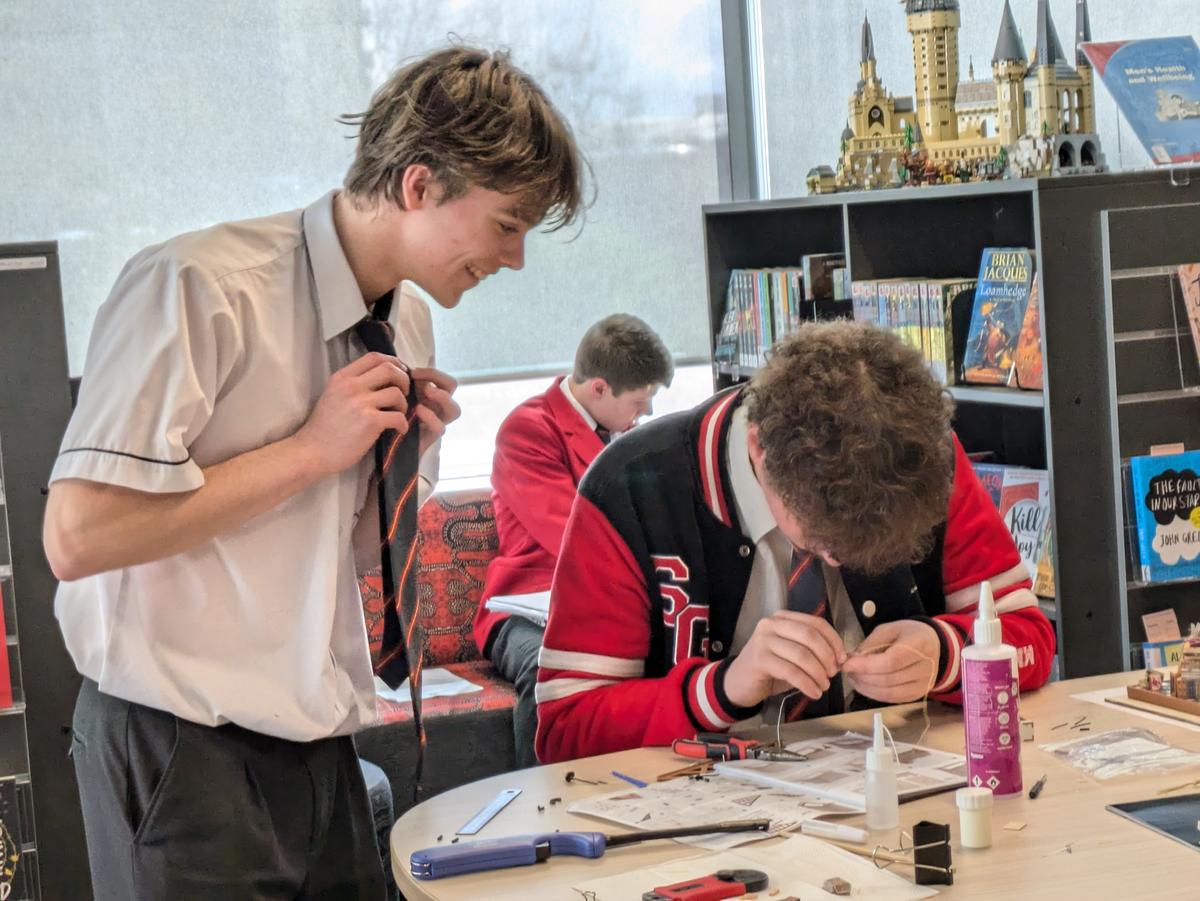Love Your Library
Dr Annette Pedersen

Love Your Library
Dr Annette Pedersen


In the aftermath of Book Week, the Library is far from slowing down. With the Mock ATAR exams drawing near, our senior students are working hard. Legendary Learners is running again until 7pm in the Library, Monday to Thursday, with students very keen to avail themselves of the time to hone their academic skills. To support them in a small way the Library is reposting a special run of “grammar” slides on the Vivi screens in classrooms. This is a series of slides explaining key terms from the ATAR syllabus.
Our two Lego Clubs are steadily working on their respective projects. In addition, it has been enjoyable to see senior students take a break to work on our miniature model library that is slowly coming together. Having something creative and collaborative to work on gives students a productive “timeout” from the pressure of preparing for exams.
Week 8 is Languages Week. Our teacher librarian, Tamsin Sykiotis, prepared some wonderful playlists for the sound system around the school. She also produced the eboards featured on the Vivi screen around the school to celebrate Languages Week. Sourced from YouTube, information about calligraphy and language opens our minds to other languages and cultures.
This week two new books on back order arrived from Campion. Ordered some time ago these are a wonderful addition to the collection. A beautiful volume of Homer’s Iliad and Odyssey is now taking pride of place on our shelves. In addition to this, Herodotus’ Histories is also freshly covered and ready to go. Herodotus wrote one of the first known history books and the book is a richly informative read. Pat Barker’s Regeneration Trilogy has been ordered and should be housed in the Library before the end of term. Given the current interest in fictional accounts of the two world wars, readers will appreciate these beautifully written volumes.
Rereading novels is an immense pleasure. It is a little like seeing an old friend after a long time – there is always much to catch up on even if you are familiar with each other’s lives. I have been rereading George Johnson’s My Brother Jack. I first read this novel years ago. Then I was really interested in the novel’s context and Johnson’s life after his second marriage to Charmain Clift. Since then, knowing about the two writers’ lives, I am more interested in his writing. The honest, but raw representation of the “Aussie battler” and almost naïve patriotism in the novel is utterly engaging.
I have also, coincidently, been rereading Rumer Godden’s classic children’s book, Miss Happiness and Miss Flower. First read when I was a child, this novel has become the bedtime story for my granddaughter who listens in wide-eyed wonder. The plot revolves around loneliness and cultural displacement. These themes are very much a current concern of young adult fiction. So, I have found myself delighted by Godden’s delicate handling of this conflict. Housing two Japanese dolls in culturally appropriate accommodation becomes a metaphor for the protagonist’s own acclimatisation. As she learns about Japan, she learns about her new family, and they learn about her. This is a tender and beautifully written little novel.
From the new book display opposite my desk I read My Brother Finch, written by Kate Gordon. A child lost in the bush is a recurring trope in Australian post settlement art and literature. From Frederick McCubbin’s “Lost” in 1886 to Joan Lindsay’s novel Picnic At Hanging Rock, lost children haunt our imagination. My Brother Finch draws on this dark theme and highlights that even wealth and privilege cannot insulate people from grief and loss. I enjoyed this little novel as it subtly explores young adult themes of friendship and finding an honest pathway through adolescence. There is always magic in reading. Together, let us read.
Dr Annette Pedersen
Library Coordinator